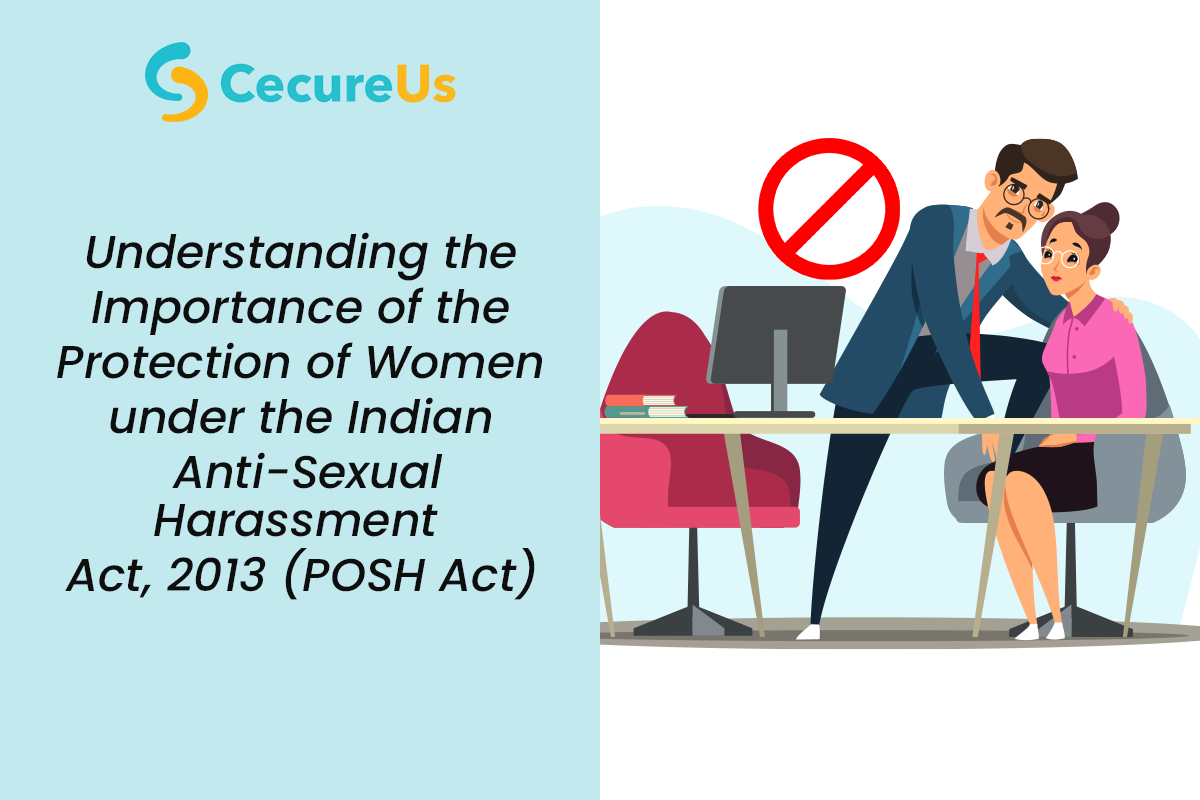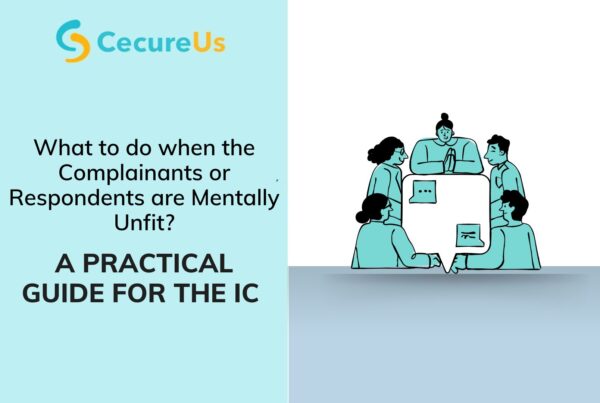
Introduction
Sexual harassment is a pervasive issue that affects women worldwide, transcending geographical boundaries, cultural norms, and economic disparities. In India, the government recognized the urgent need to address this problem and took a significant step forward by enacting the Sexual Harassment of Women at Workplace (Prevention, Prohibition and Redressal) Act, 2013. This landmark legislation aims to provide women with a safe and respectful working environment, free from any form of sexual harassment. In this blog post, we will explore the importance of the protection of women under the Indian Anti-Sexual Harassment Act, 2013 and share an industry best practice as an actionable item for any organization.
Upholding Women’s Dignity and Rights
The primary objective of the Indian Anti-Sexual Harassment Act is to safeguard the dignity and rights of women in the workplace. It recognizes that every woman deserves to be treated with respect and professionalism. By establishing provisions and procedures to address sexual harassment complaints, the law empowers women to assert their rights, ensuring that their voices are heard and their grievances are properly addressed.
Creating Safer Workplaces
The Indian Anti-Sexual Harassment Act plays a pivotal role in creating safer and more inclusive workplaces. It places a legal obligation on employers to prevent and redress sexual harassment incidents, thereby fostering a conducive environment for all employees. The Act requires employers to establish an Internal Committee (IC) at each workplace with 10 or more employees, responsible for receiving complaints, conducting investigations, and recommending appropriate punishments. This proactive approach helps in cultivating a culture of zero tolerance towards sexual harassment, making workplaces safer for women.
Promoting Gender Equality
Gender equality is a fundamental principle enshrined in the Indian Constitution. The Anti-Sexual Harassment Act reinforces this principle by addressing the power dynamics that often perpetuate sexual harassment. By recognizing the disproportionate impact of sexual harassment on women and the importance of creating a level playing field, the Act seeks to promote gender equality in the workplace. It sends a strong message that women should be treated with dignity and respect, irrespective of their position or role.
Encouraging Reporting and Redressal
One of the critical aspects of the Anti-Sexual Harassment Act is its emphasis on encouraging victims to report incidents of sexual harassment. The Act provides a comprehensive framework for reporting complaints, ensuring confidentiality, and protecting the identity of the complainant. By offering a secure platform to report sexual harassment, the Act encourages more women to come forward and seek redressal. This not only helps individual victims but also serves as a deterrent for potential harassers, contributing to the overall reduction of such incidents. The employer is also mandated to annually report the number of sexual harassment complaints received, the cases disposed of, the cases pending beyond 90 days and the nature of action taken by the employer.
Accountability and Disciplinary Action
The Act holds both the employer and the harasser accountable for their actions. Employers must constitute the IC under Section 4 and organize orientation and skill-building programs for the IC so that it can function effectively. The IC is required to take prompt and appropriate action upon receiving a complaint, conducting a fair investigation, and writing a reasoned order. The employer must monitor the timely submission of the IC report. The employer implements the recommendations of the IC by taking action against the guilty party.
This provision ensures that employers are actively involved in preventing sexual harassment including any malicious sexual harassment allegations and maintaining a safe work environment. Moreover, by imposing penalties for non-compliance with the Act’s provisions, it reinforces the seriousness of the issue and the need for swift action.
Take Note: Recent Supreme Court directives on 12th May, 2023 in Aureliano Fernandes vs State of Goa and Others [Civil Appeal No. 2482 of 2014] must be complied with within 8 weeks of the issuance, and employers are likely to be held responsible for failing to comply with them.
Prevention through Awareness and Training
Prevention is the cornerstone of combating sexual harassment effectively. The Anti-Sexual Harassment Act recognizes the importance of awareness and training in preventing such incidents. Employers are mandated to conduct regular workshops, training programs, and awareness campaigns to educate employees about their rights and responsibilities. Under Rule 13 of the POSH Act, the employer must formulate & widely disseminate a POSH policy for prevention, prohibition, and redressal of sexual harassment at the workplace. This policy should intend to promote gender sensitive workplaces.
One of the recent industry best practices is to conduct POSH & Gender Sensitization combo session as POSH ensures compliance and gender sensitization helps build a culture of inclusion. These initiatives help in sensitizing the workforce, fostering empathy, and cultivating a culture of respect and dignity towards women.
Extended Protection beyond the Workplace
While the Anti-Sexual Harassment Act primarily focuses on workplace sexual harassment, it also provides protection to women beyond the office premises. It covers sexual harassment occurring during work-related events, off-site conferences, or training programs, ensuring that women are safeguarded in professional settings irrespective of the physical location.
Post-pandemic, the gigantic growth in the work-from-home mode led to awareness campaigns ensuring to inform the employees that the Act is applicable to virtual workplace as well. This extended protection reinforces the commitment of the Act to address all forms of sexual harassment faced by women in their professional lives, be it physical or virtual.
Conclusion
The Indian Anti-Sexual Harassment Act, 2013, is a significant milestone in the fight against sexual harassment and the protection of women’s rights in India. By establishing a legal framework to address workplace sexual harassment, the Act promotes gender equality, creates safer environments, and encourages reporting and redressal. It emphasizes the need for awareness, prevention, and accountability, holding employers and harassers responsible for their actions. As India continues to strive towards a society free from sexual harassment, the implementation and effective enforcement of this Act remain crucial for the well-being and empowerment of women in the workplace. An inclusive workplace is essential for all employees to thrive, not just women at the workplace.
Please reach out to us for any queries on Protection of Women under the Indian Anti-Sexual Harassment Act, 2013 (POSH Act).
For more blogs and articles, visit our official website. Contact us for workshops and queries related to POSH, EAP (Employee Assistance Program,) and Diversity and Inclusion.




